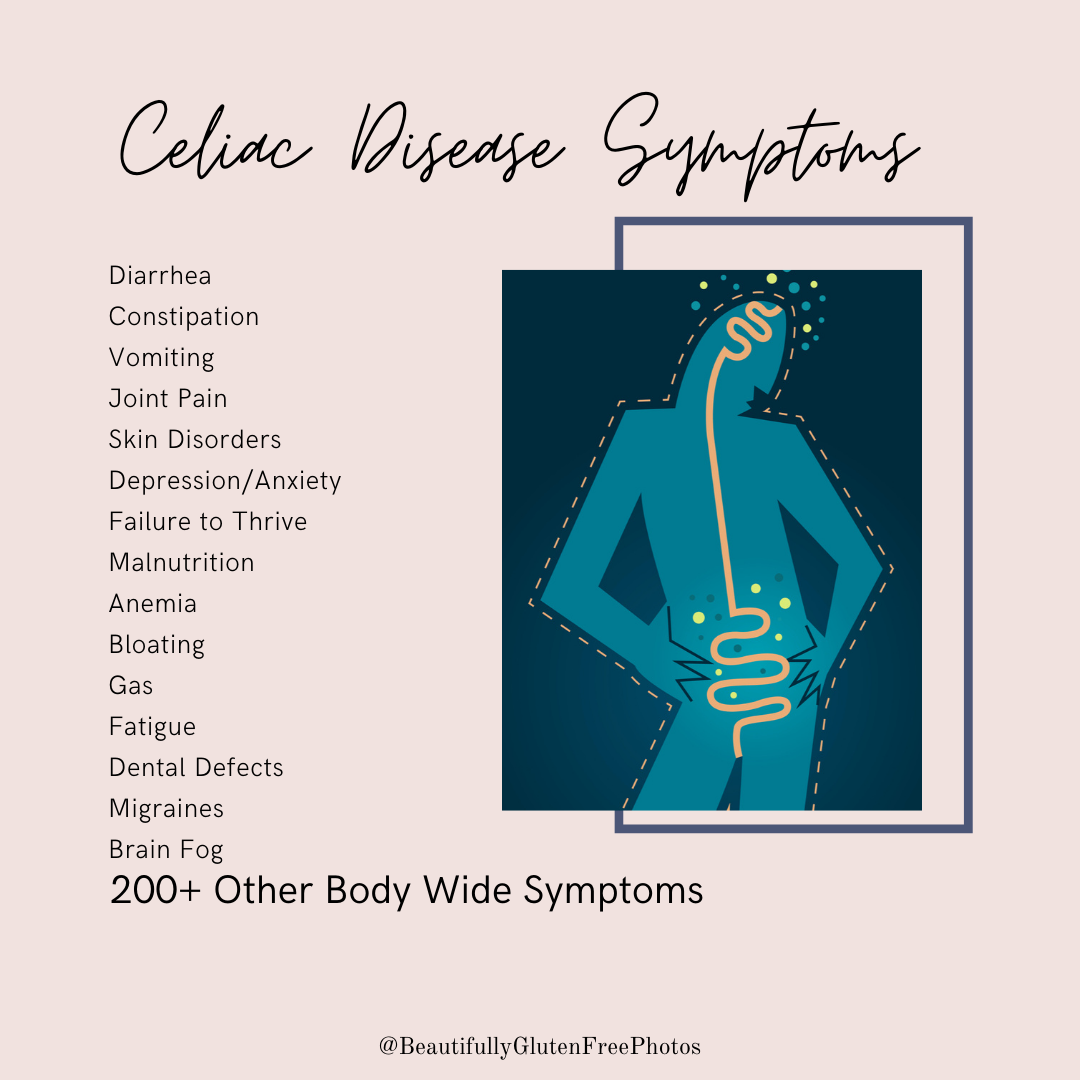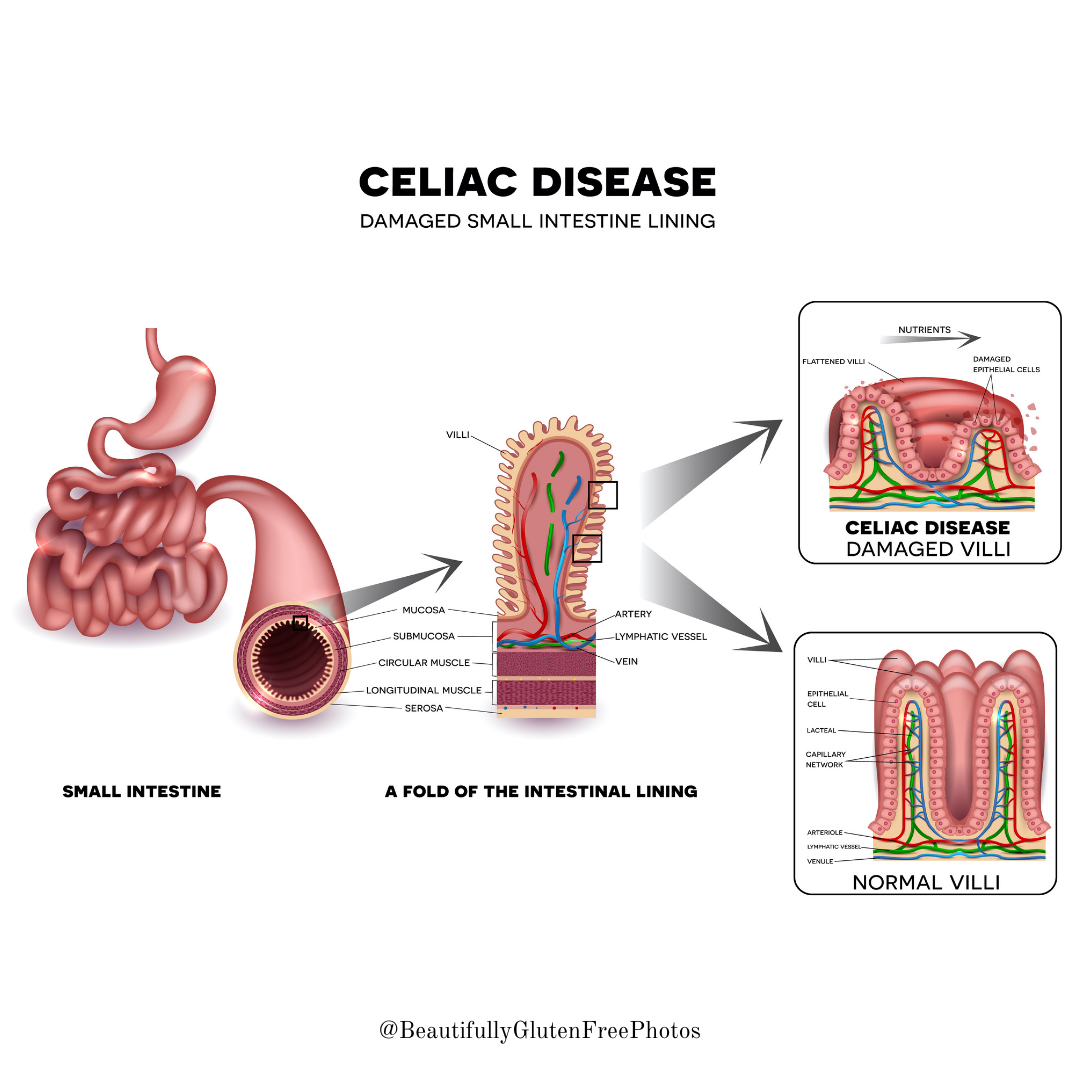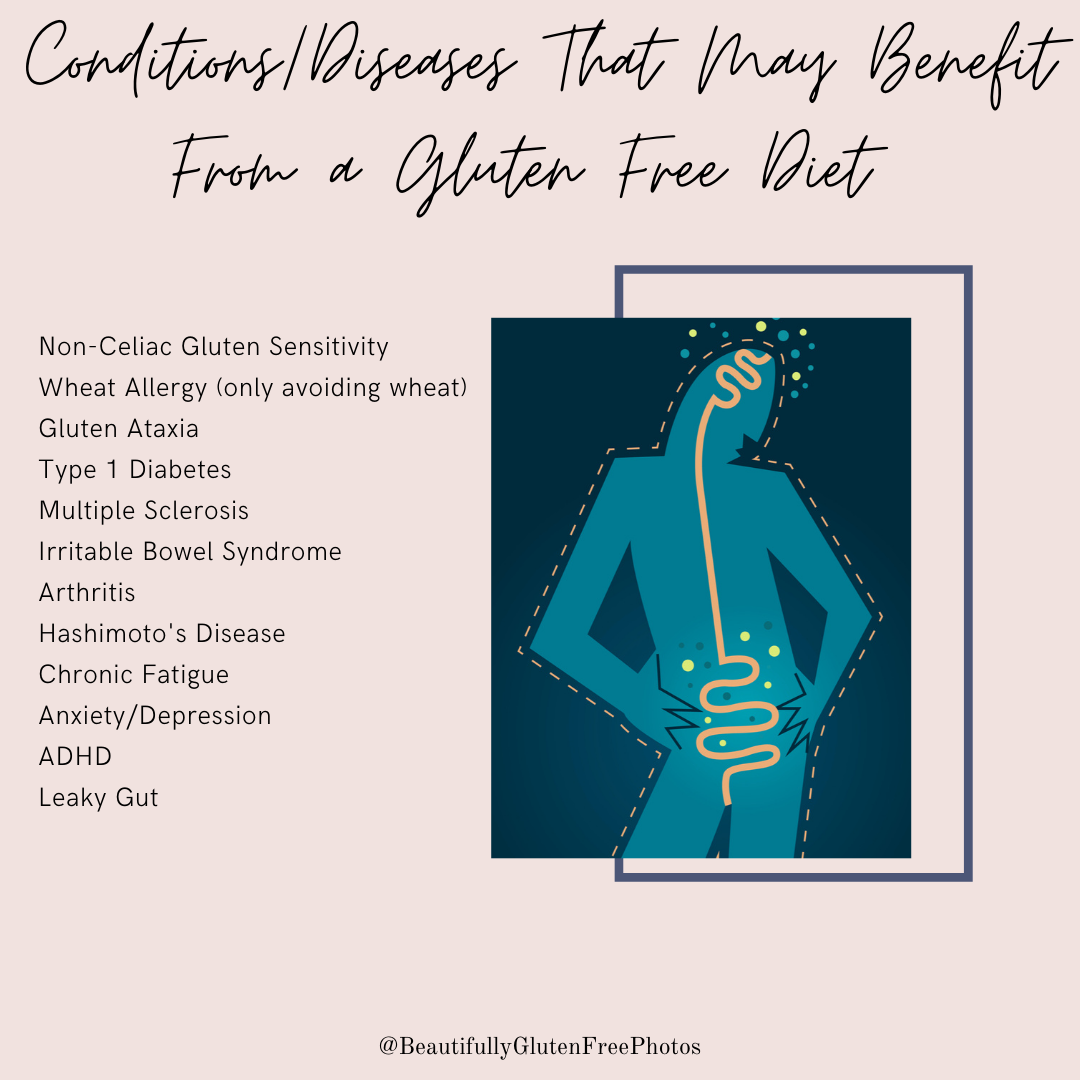What is Celiac Disease?
Celiac disease is a genetic autoimmune disease affecting 1% of the population, about 1 in 100 people. Following a strict gluten free diet is the only treatment. There are more than 200 mental and physical, body wide, symptoms that can mimic other conditions, which contributes to celiac disease being misdiagnosed or undiagnosed for an average of 6 - 10 years. Undiagnosed or poorly managed celiac disease can lead to other autoimmune diseases and negative health conditions.
If you are here, you or someone you know may have been recently diagnosed with celiac disease or you are curious about celiac disease. Welcome!
It is important to note that if you think you may have celiac disease, start the screening process by speaking with your medical provider about the appropriate blood tests, making sure to keep gluten in your diet until ALL testing has been completed. Accurate blood screening and endoscopy results, for celiac disease, requires gluten to be in your diet. As this is a genetic disease, it is advised that all immediate family members get tested for celiac disease.
For those with celiac disease, when gluten, a protein found wheat, barley rye and triticale, is consumed, an immune response is triggered that causes the body to attack the lining of the small intestine. Extended exposure to gluten results in the flattening of the villi (villous atrophy) that line the small intestines, which leads to chronic inflammation, malabsorption of essential vitamins/minerals and one or more of the many body-wide symptoms listed above. It is possible to be asymptomatic/silent celiac, to not experience any outward symptoms, but still have damage occur to the small intestines. Long term damage to the villi and small intestines can lead to the development of some cancers and other autoimmune diseases and conditions.
It is not known, exactly, what causes celiac disease, but there are 3 known factors that need to be present for celiac to develop: one or both of the two celiac genes (HLA-DQA1 and/or HLA-DQB1), active consumption of gluten and a physical or environmental trigger (pregnancy, viral infections and/or emotional or physical stressors for example).
To have celiac disease, the gene/s needs to be triggered/activated, which can happen at any time during the lifetime, infancy to elderly. The average age of a celiac diagnosis is between 40 - 60 years of age and occurs more often in women. Considering only about 10% of the celiac population has been diagnosed, these numbers could change.
An individual who carries one of both of the celiac genes may never develop an active version of celiac disease but carrying both genes does increase the chance of developing celiac.
Important, and this can’t be stated too much! For accurate celiac disease screening, gluten MUST be present in the diet before and during all testing procedures. Once gluten is removed from the diet, the body begins to heal which could lead to inaccurate results. On the other hand, for genetic testing, gluten does not need to be consumed for accurate results.
If a gluten free diet is already being followed, without an official celiac disease diagnosis and screening for celiac is being considered, a medical provider should recommend starting a Gluten Challenge; which requires consuming the equivalent of about one piece of gluten containing bread daily for 6 - 8 weeks prior to testing.
Once diagnosed with celiac disease, the only form of treatment is following a strict, life long, gluten free diet. Click here for more information about gluten and some of the common and hidden sources of gluten; it can be found in both food and non-food products.
Setting up an appointment with a dietitian can be very beneficial, especially when addressing any nutrient deficiencies, but not all understand the nuances of living a strict gluten free life for medical reasons. To make sure it’s worth your time and money, ask questions. Living a strict gluten free life, for medical reasons, is more than just eating gluten free.
While it has been scientifically proven that the only treatment for celiac disease is following a strict gluten free diet, other diseases and conditions may benefit from adopting a gluten free diet; reach out to your medical provider for more information.
Navigating life after receiving a celiac diagnosis, or because of other medical conditions, can be very challenging on a variety of levels, for the individual as well as friends and family. Click here for suggestions about how to care for and support someone who is following a strict gluten free diet.
Anne Barbo Moon
Disclaimer:
While I have 15+ years’ experience of navigating the world as the parents of a child with celiac, have worked with multiple celiac disease related organizations, and has a Master’s of Science in Holistic Nutrition I am not a physician, or other licensed medical professional. The material and content contained on this website is for informational purposes only and are not intended to serve as a substitute for consultation, diagnosis, or medical treatment by a licensed medical professional. Please consult your doctor for any medical or health-related questions. The information contained on this website should NOT replace medical or health-related advice from a physician or licensed medical professional.








